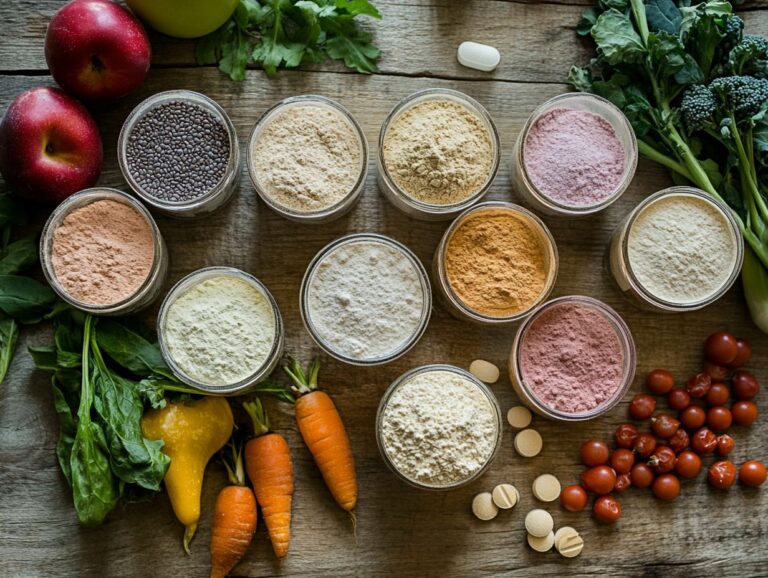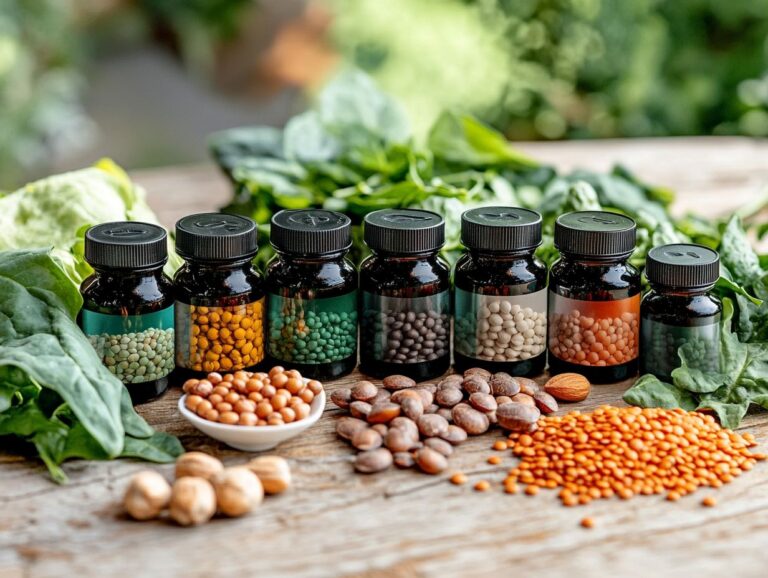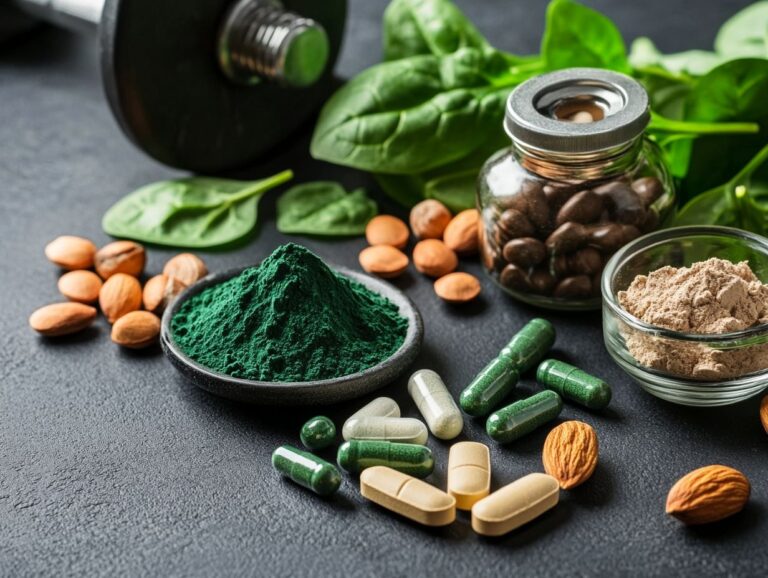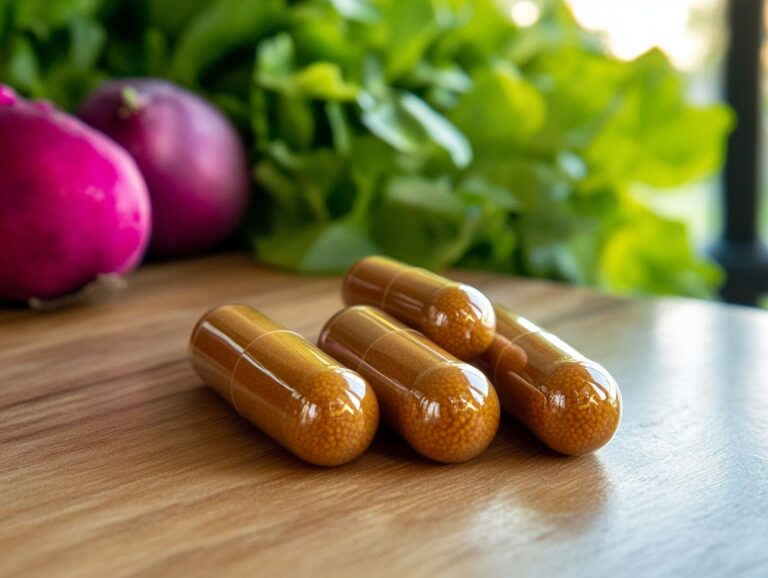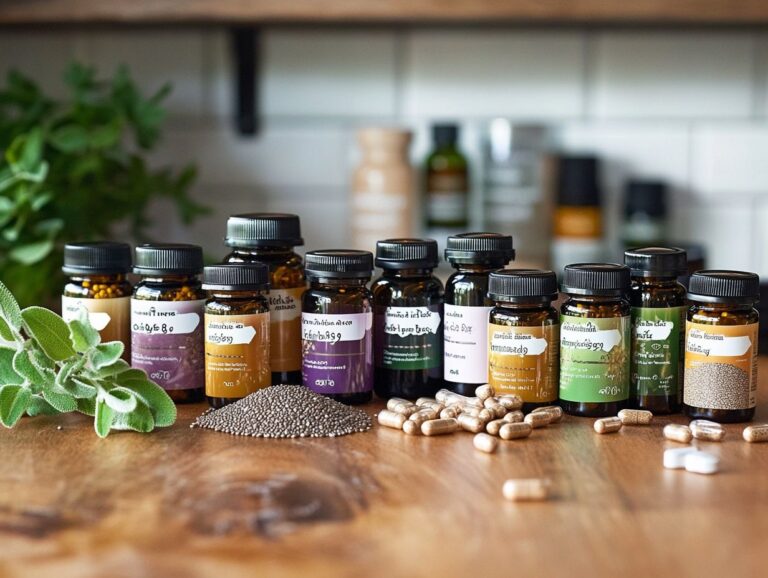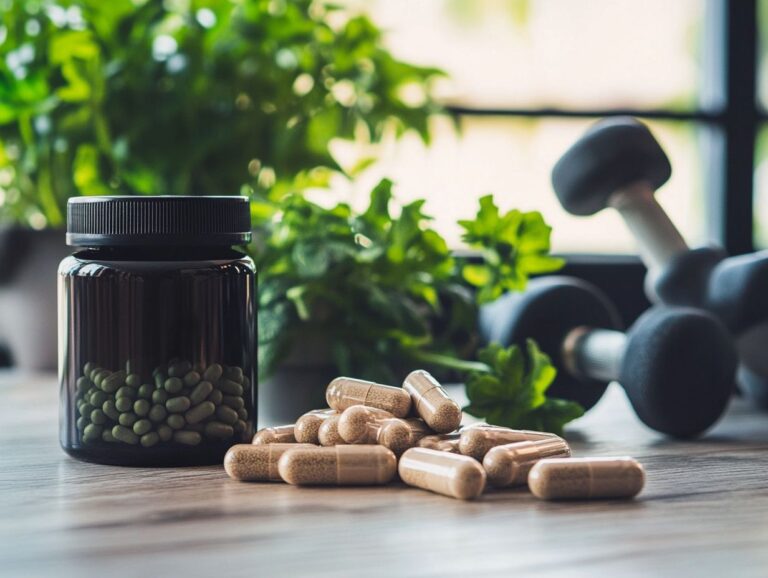Iron supplements play a vital role in maintaining optimal health, particularly for individuals following a vegan lifestyle, which often emphasizes a plant-based diet. Given that the risk of iron deficiency is higher in plant-based diets due to the presence of phytates and other phytochemicals, it is essential to understand the various types of iron supplements, their health benefits, and any potential risks associated with them. This guide will explore what iron supplements are, their compatibility with vegan diets, and how to choose the right option for your needs. Whether you are considering supplementation or simply seeking information on an iron-rich diet, you will find valuable insights ahead!
Key Takeaways:
- Iron supplements can be beneficial for vegans, but it is important to choose vegan-friendly options.
- Make sure to check the source of iron in supplements, such as non-heme iron, and look for vegan certification to ensure they align with a vegan lifestyle.
- Consult with a healthcare provider before taking iron supplements, as they can have potential risks and interactions with other medications.
What Are Iron Supplements and Their Benefits?
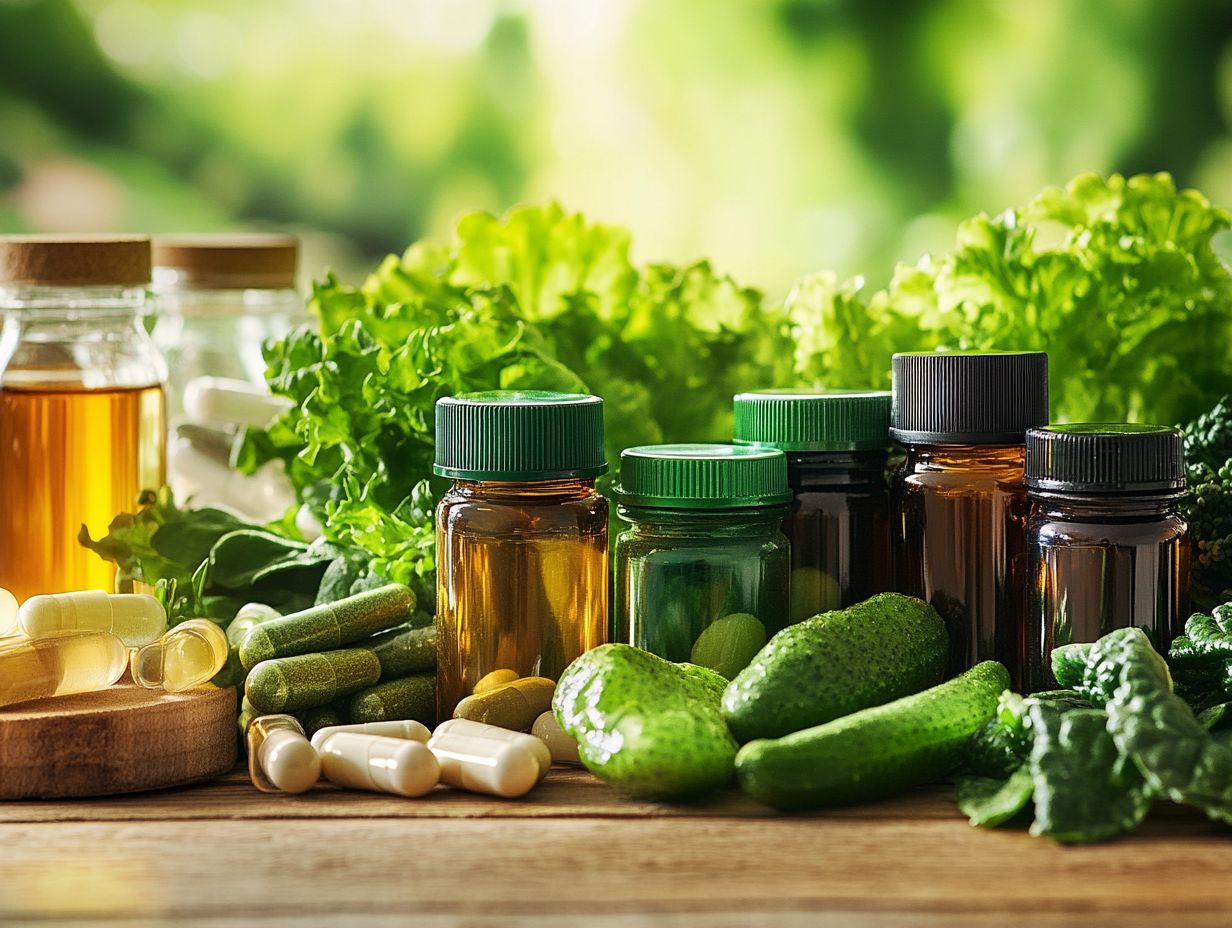 Iron supplements are dietary products designed to increase iron intake and are commonly used by individuals who do not obtain sufficient iron from their diets, especially those following a vegan or plant-based diet. These supplements come in various forms, including ferrous and ferric iron, and play a vital role in preventing iron deficiency anemia. By boosting iron levels in the body, they are essential for maintaining energy, focus, and overall well-being, while preventing symptoms of iron deficiency.
Iron supplements are dietary products designed to increase iron intake and are commonly used by individuals who do not obtain sufficient iron from their diets, especially those following a vegan or plant-based diet. These supplements come in various forms, including ferrous and ferric iron, and play a vital role in preventing iron deficiency anemia. By boosting iron levels in the body, they are essential for maintaining energy, focus, and overall well-being, while preventing symptoms of iron deficiency.
Why Do People Take Iron Supplements?
Iron supplements are primarily used to address iron deficiency and to prevent or treat iron deficiency anemia, a condition that can lead to symptoms of iron deficiency such as fatigue, decreased immunity, difficulty concentrating, and reduced work performance. This need is particularly significant for individuals following a vegan diet, as they may not obtain sufficient iron from their food sources, which include legumes, nuts, spinach, and fortified cereals. This is largely due to the fact that the majority of dietary iron found in plants is non-heme iron, which is not absorbed as efficiently as heme iron from animal products, making the role of vitamin C important to improve absorption. By increasing overall iron intake, supplements can contribute to improved health and well-being.
What Are the Different Types of Iron Supplements?
Iron supplements are classified into three types: ferrous iron, ferric iron, and heme iron supplements. These categories differ in terms of iron absorption and efficacy. Ferrous iron supplements, such as ferrous sulfate, are most commonly recommended due to their higher bioavailability and better absorption of iron. Ferric iron supplements may be included in certain formulations to enhance absorption. Heme iron supplements, derived from animal sources, are less commonly available but offer options for individuals who may benefit from them, although they are not suitable for a vegan diet.
1. Ferrous Iron Supplements
Ferrous iron supplements are among the most commonly recommended options due to their chemical structure, which allows for high gastrointestinal absorbability. This makes them the most effective form of iron supplementation for rapidly and efficiently increasing iron levels in humans. They play a crucial role in improving iron intake, which is essential for the prevention and treatment of iron deficiency anemia. The fast absorption of ferrous iron supplements is primarily attributed to their content of ferrous (Fe2+) iron, which has much higher solubility in the acidic environment of the stomach, providing significant health benefits by preventing iron deficiency anemia. These supplements have an average bioavailability of approximately 15-35%, meaning that a significant portion can be utilized by the body. However, while they are quickly absorbed, they can also cause side effects such as gastrointestinal discomfort, constipation, or nausea, with the severity of these effects varying among individuals, especially when taken alongside calcium supplements. In contrast, other forms of iron, such as ferric (Fe3+) compounds, have lower absorption rates and are therefore less effective than ferrous compounds in increasing serum ferritin and hemoglobin levels. The unique characteristics of ferrous iron supplements enable consumers to make more informed choices about their health.
2. Ferric Iron Supplements
Ferric iron supplements are used less frequently than various forms of ferrous iron supplements, but they can be beneficial in certain formulations for individuals who need increased iron levels without the gastrointestinal side effects often caused by ferrous iron. Ferric iron supplements are more commonly recommended for those who have experienced adverse reactions to ferrous forms of iron or for individuals with specific health conditions, such as chronic kidney disease or gastrointestinal disorders that hinder iron absorption. The mechanism of action for ferric iron differs, as it must be converted to ferrous iron for the body to utilize it. However, recent advancements in supplement technology have led to the development of more bioavailable ferric formulations, making them a suitable option for managing iron deficiency, especially for those who require a gentler form of supplementation.
3. Heme Iron Supplements
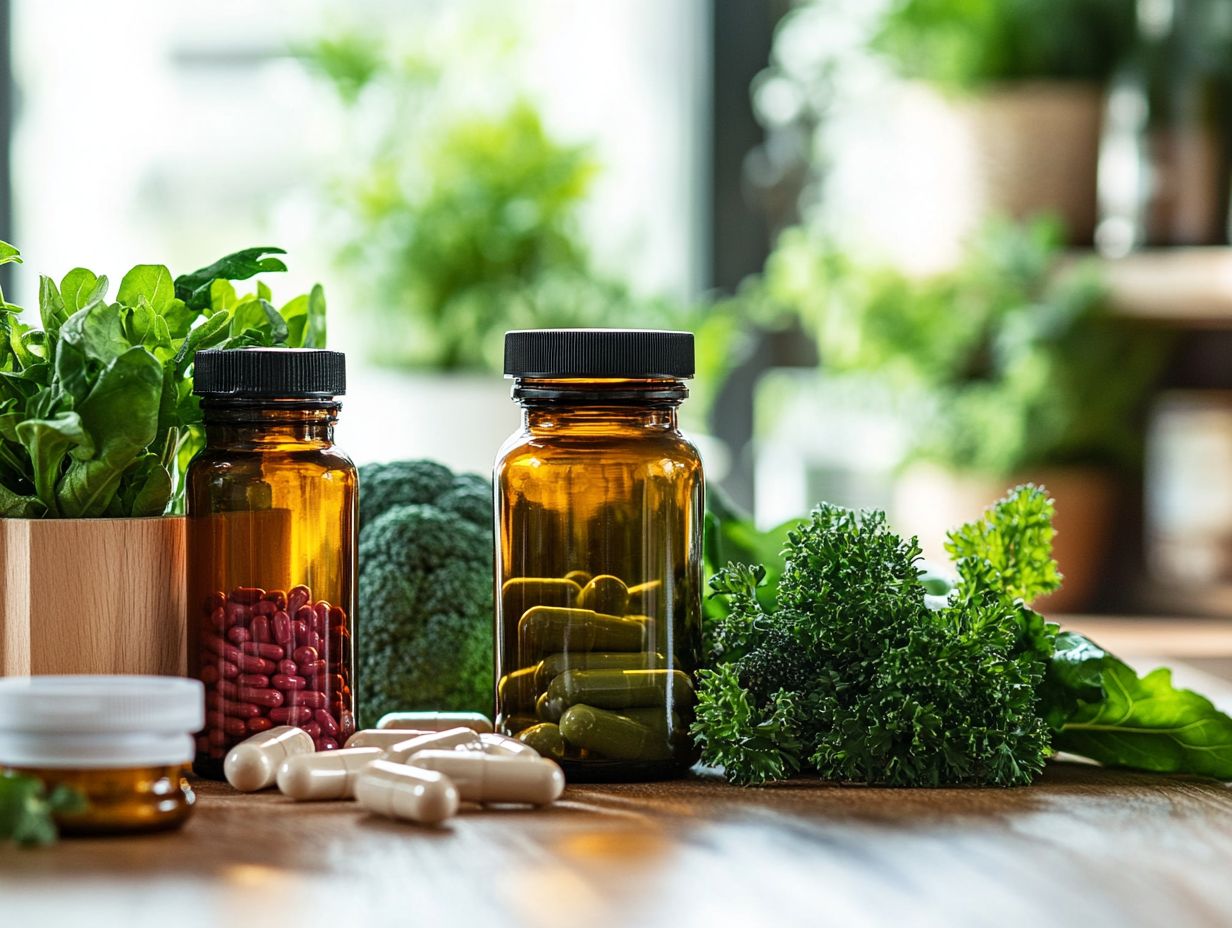 Heme iron supplements are derived from animal sources and have high bioavailability, making them effective for increasing iron levels in the body. However, their use is often limited for individuals following a vegan diet, as these supplements do not align with their dietary preferences. Heme iron is primarily found in meat, poultry, and fish, and it is absorbed much more efficiently than non-heme iron, which is mainly present in plant-based foods. The body utilizes heme iron very effectively, reducing the risk of deficiency and ensuring adequate hemoglobin levels. For those who consume animal products regularly, heme iron supplements can be a beneficial option for raising low iron levels. Conversely, vegans face the challenge of obtaining sufficient iron from non-heme sources. Although these sources provide dietary iron, they require careful pairing with vitamin C-rich foods to enhance absorption. This situation underscores how the choice of iron supplementation can influence dietary patterns for individuals across different lifestyles.
Heme iron supplements are derived from animal sources and have high bioavailability, making them effective for increasing iron levels in the body. However, their use is often limited for individuals following a vegan diet, as these supplements do not align with their dietary preferences. Heme iron is primarily found in meat, poultry, and fish, and it is absorbed much more efficiently than non-heme iron, which is mainly present in plant-based foods. The body utilizes heme iron very effectively, reducing the risk of deficiency and ensuring adequate hemoglobin levels. For those who consume animal products regularly, heme iron supplements can be a beneficial option for raising low iron levels. Conversely, vegans face the challenge of obtaining sufficient iron from non-heme sources. Although these sources provide dietary iron, they require careful pairing with vitamin C-rich foods to enhance absorption. This situation underscores how the choice of iron supplementation can influence dietary patterns for individuals across different lifestyles.
Are Iron Supplements Vegan-Friendly?
Whether iron supplements are vegan depends on their manufacturing process and the source of the iron, as well as any additional ingredients included in the supplement. Many common iron supplements are derived from animal sources. Heme iron supplements, which come from animals, are not vegan. However, there are numerous non-heme iron supplements that are plant-based and vegan-friendly. This allows individuals following a vegan diet to effectively meet their iron needs.
1. Sources of Iron in Iron Supplements
Iron supplements can vary in their sources, including both heme iron from animal products and non-heme iron from plant-based sources such as legumes and fortified cereals. This distinction is particularly important for individuals following a vegan diet who need non-heme sources to meet their dietary requirements, as non-heme iron is found in plant-based foods like legumes, nuts, and vegetables such as sweet potatoes. Heme iron, primarily found in meat, poultry, and seafood, is generally absorbed more efficiently by the body than non-heme iron found in an iron-rich diet consisting of plant-based foods. Non-heme iron is present in a variety of plant foods, including dark green leafy vegetables, legumes, lentils, nuts, and both whole and fortified grains. To effectively absorb non-heme iron, the body requires vitamin C, making it crucial for vegans to consider their intake of this vitamin alongside iron-rich foods. Consequently, it is essential for vegans to monitor their overall iron intake and consume iron-rich foods in combination with vitamin C-rich options to ensure optimal absorption.
2. Is the Source of Iron in Iron Supplements Important for Vegans?
The type of iron found in iron supplements is particularly important for vegans, as it directly influences their ability to maintain balanced iron levels while adhering to their dietary values. Non-heme iron, which is exclusively present in plant-based sources, is essential for preventing iron deficiency without compromising vegan principles, and is a key component of food sources of iron like legumes, nuts, and vegetables. However, non-heme iron is less readily absorbed by the body compared to heme iron, which is found in animal products. Consequently, vegans must be more mindful of their iron sources, often needing to pair iron-rich plant foods with vitamin C-rich foods such as broccoli and beets to enhance iron absorption. Ensuring adequate iron intake offers numerous health benefits, including increased energy levels, improved cognitive function, and better immune health, all of which contribute to a healthy lifestyle while upholding ethical eating practices, as recommended by organizations like the National Institute of Health and the Food and Nutrition Board.
What Are the Benefits of Iron Supplements for Vegans?
Iron supplements offer several health benefits to vegans, particularly in preventing iron deficiency anemia, which can lead to various health risks, including fatigue and a weakened immune response. By ensuring adequate iron intake through appropriate supplementation, individuals on vegan diets can enhance their overall health and energy levels, potentially reducing the risk of anemia. This improvement makes it easier for them to maintain a balanced diet that includes more iron-rich foods.
1. Helps Prevent Iron Deficiency Anemia
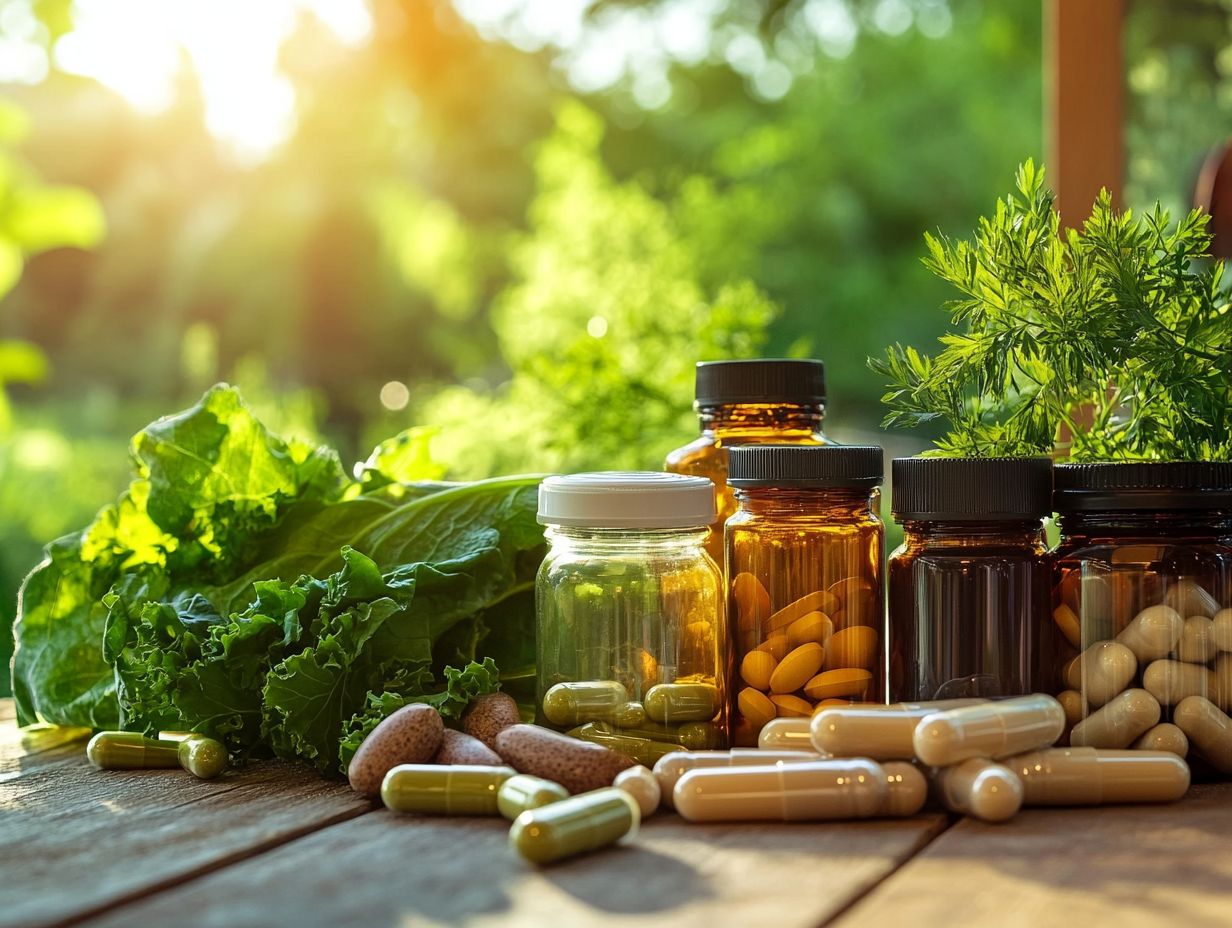 The primary benefits of iron supplements for vegans include their role in preventing iron deficiency anemia, a condition that occurs when there is insufficient iron to produce healthy red blood cells, which can be exacerbated by the consumption of coffee and tea, which inhibit iron absorption. This deficiency can lead to fatigue, weakness, and various other serious health issues. Iron deficiency is particularly prevalent among vegetarians and vegans, as they typically consume little to no heme iron, which is found in animal products and is more readily absorbed by the body. Research from the National Institute of Health indicates that approximately 30% of vegans experience some level of iron deficiency, highlighting the importance of monitoring their iron status. Iron supplements help increase the levels of iron in the bloodstream, leading to the production of hemoglobin, the molecule responsible for transporting oxygen throughout the body. Proactive supplementation with products like MegaFood Blood Builder is especially crucial during periods of increased iron demands, such as pregnancy or intense physical exertion, to help maintain energy levels and overall good health.
The primary benefits of iron supplements for vegans include their role in preventing iron deficiency anemia, a condition that occurs when there is insufficient iron to produce healthy red blood cells, which can be exacerbated by the consumption of coffee and tea, which inhibit iron absorption. This deficiency can lead to fatigue, weakness, and various other serious health issues. Iron deficiency is particularly prevalent among vegetarians and vegans, as they typically consume little to no heme iron, which is found in animal products and is more readily absorbed by the body. Research from the National Institute of Health indicates that approximately 30% of vegans experience some level of iron deficiency, highlighting the importance of monitoring their iron status. Iron supplements help increase the levels of iron in the bloodstream, leading to the production of hemoglobin, the molecule responsible for transporting oxygen throughout the body. Proactive supplementation with products like MegaFood Blood Builder is especially crucial during periods of increased iron demands, such as pregnancy or intense physical exertion, to help maintain energy levels and overall good health.
2. Can Improve Energy Levels
Iron supplements can boost energy levels for individuals following a vegan diet who may not be obtaining sufficient iron from food sources like legumes, nuts, and vegetables. An increase in dietary iron enhances the oxygen-carrying capacity of the blood, which is essential for improving stamina and reducing feelings of fatigue. This is particularly important for those who are physically active or lead busy lives, as low iron levels can negatively impact overall vitality and productivity. Replenishing iron stores can enhance physical performance, enabling individuals to return to their workout routines or enjoy recreational activities. When energy levels are low, even the simplest daily tasks can become overwhelming. Additionally, mental clarity may suffer, and a negative mindset can develop. Therefore, iron supplements can serve as a beneficial option for those in need, helping them regain energy and vitality to resume their normal activities.
3. May Help with Hair Loss and Brittle Nails
Iron deficiency can result in various physical symptoms, including hair loss and brittle nails, making iron supplementation an important consideration for vegans who are more susceptible to these effects. Improving iron levels may enhance hair and nail health. Insufficient iron levels can hinder the body’s ability to produce hemoglobin, a protein in red blood cells responsible for transporting oxygen to tissues throughout the body, including hair follicles and nails. Adding Vitamin C to your diet can further enhance the absorption of non-heme iron, aiding in better overall results. This can lead to impaired oxygen delivery to hair and nails, manifesting as hair shedding and weaker, more brittle nails. Many individuals have reported improvements in hair thickness and nail strength within weeks of starting iron supplements. A study on the effects of iron supplementation in treating and preventing iron-deficiency anemia in children highlights that consistent iron supplementation improves energy levels and overall vitality, reinforcing the importance of optimizing iron levels, especially for those following restrictive diets. The Food and Nutrition Board recommends appropriate guidelines to ensure proper iron intake and management.
What Are the Risks of Taking Iron Supplements for Vegans?
Iron supplements can offer essential benefits for vegans, but it’s important to consider the associated risks, particularly regarding iron overload, which can lead to liver damage and heart issues. A balanced diet typically provides sufficient iron for most individuals, so excessive supplementation can be dangerous, especially for those who do not have a diagnosed deficiency.
1. Iron Overload
The primary health risk associated with excessive iron supplementation is iron overload, which can lead to serious conditions like hemochromatosis. This condition causes the body to store excessive amounts of iron, potentially damaging the liver, heart, and other organs. This risk highlights the importance of ensuring proper dosage and monitoring during iron supplementation. Individuals with iron overload may experience symptoms such as fatigue, joint pain, and abdominal discomfort, which can significantly impair their quality of life. Over time, excess iron in the body poses a risk of long-term health problems, including diabetes, heart disease, and liver cirrhosis. Adhering to safe supplementation guidelines is critical for reducing these risks, ensuring that iron levels are appropriate for an individual’s needs. Periodic blood tests to monitor ferritin and transferrin saturation levels are essential, as they provide valuable information regarding a person s iron status and help prevent the negative complications associated with excess iron in the body.
2. Interactions with Other Medications
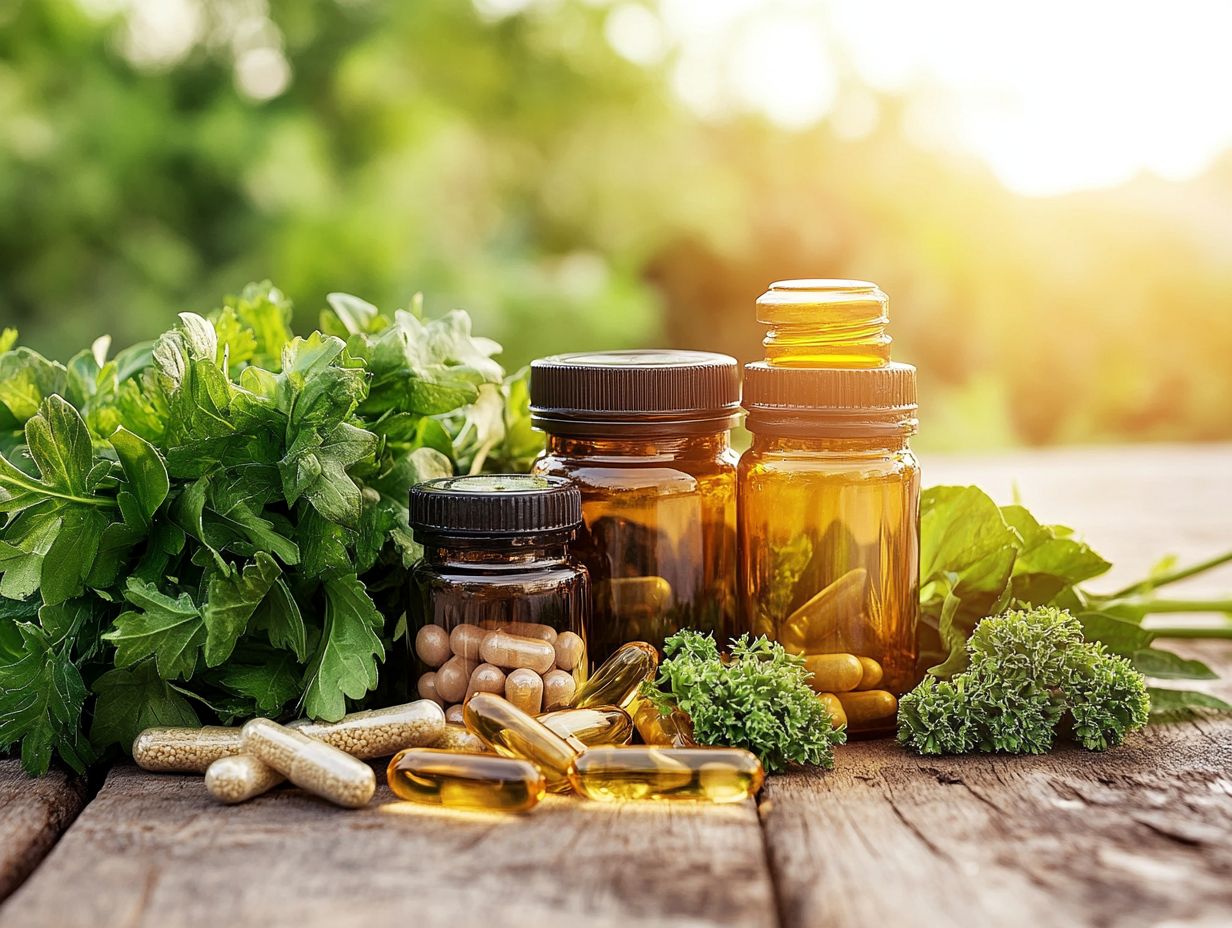 Iron supplements can interact with certain medications, potentially decreasing the absorption of either iron or the drug itself. Therefore, it is crucial for individuals taking iron supplements to be aware of their overall medication regimen. For instance, calcium supplements and some antibiotics can hinder iron absorption, while medications such as proton pump inhibitors and antacids that alter gastric pH may also reduce the body s uptake of iron. This interference can lead to suboptimal iron levels, resulting in fatigue and impaired cognitive function over time. To manage this issue, it is advisable to time the use of iron supplements appropriately, ideally taking them on an empty stomach and avoiding their consumption in conjunction with these specific medications. Collaborating with a healthcare provider is important to develop a plan that maintains optimal iron levels while ensuring the efficacy of other necessary medications.
Iron supplements can interact with certain medications, potentially decreasing the absorption of either iron or the drug itself. Therefore, it is crucial for individuals taking iron supplements to be aware of their overall medication regimen. For instance, calcium supplements and some antibiotics can hinder iron absorption, while medications such as proton pump inhibitors and antacids that alter gastric pH may also reduce the body s uptake of iron. This interference can lead to suboptimal iron levels, resulting in fatigue and impaired cognitive function over time. To manage this issue, it is advisable to time the use of iron supplements appropriately, ideally taking them on an empty stomach and avoiding their consumption in conjunction with these specific medications. Collaborating with a healthcare provider is important to develop a plan that maintains optimal iron levels while ensuring the efficacy of other necessary medications.
How to Choose Vegan-Friendly Iron Supplements?
Vegan-friendly iron supplements should be chosen with careful consideration of the product’s ingredients and sourcing since not all iron supplements are vegan. Vegans should avoid any iron supplements that do not explicitly indicate that the source of iron is non-heme. Additionally, iron supplements with third-party vegan certifications offer an extra level of assurance that the product is genuinely vegan.
1. Check the Source of Iron
Identifying the source of iron is essential for selecting iron supplements that are free from animal-derived products. Most vegan-friendly iron supplements use non-heme iron sourced from plants. Understanding the distinction between heme and non-heme iron is crucial for individuals aiming to make informed health choices. Heme iron, which is found in animal sources, is more easily absorbed by the body, whereas non-heme iron from plants is less easily absorbed and requires specific conditions to enhance its bioavailability to the body’s cells. Consuming non-heme iron with Vitamin C-rich foods like sweet potatoes can significantly improve its absorption. Therefore, individuals following a plant-based diet should choose reputable brands that utilize non-heme iron sources and include additional ingredients, such as vitamin C, to improve iron absorption.
2. Look for Vegan Certification
Vegan certification for iron supplements ensures that the product aligns with the dietary principles of veganism, specifically by guaranteeing that no animal-derived ingredients are used. Certifications from reputable organizations serve as an essential resource for consumers looking to navigate the supplement market more effectively. Organizations like the Vegan Society and others certified by Vegan Action conduct thorough assessments of the entire manufacturing process, which includes examining the raw material supply chain, storage facilities, and packaging. These certifications help ensure that products like iron supplements meet the high standards required for vegan certification. This scrutiny is crucial in the supplement market, where many products may inadvertently contain non-vegan materials such as gelatin or certain colorants. By choosing certified brands, consumers can be confident that their iron supplementation is both effective and in harmony with their ethical and dietary values. Therefore, prioritizing certified brands is essential for a genuine vegan experience.
3. Consider Other Ingredients
Along with evaluating the source of iron, it is essential to consider the other components of iron supplements, as certain additives or fillers may not be vegan. Ensuring that the entire formulation aligns with vegan values can enhance the health benefits of the supplement. A thorough review of the ingredient list may also reveal potential allergens or non-vegan ingredients, such as gelatin or dairy derivatives. Ingredients that are recognized as plant-based are typically identifiable by familiar names like plant extracts, minerals, or natural flavors, rather than vague terms like “natural source.” Individuals who prefer clean formulations may choose to use only certified vegan brands or those specifically labeled as allergen-free. This evaluative approach allows individuals to meet their nutritional needs while adhering to their ethical standards in all aspects of their nutrition.
4. Consult with a Healthcare Provider
It is essential for individuals following a vegan diet, who may be at risk for iron deficiency, to seek guidance from a healthcare provider before starting any iron supplementation. Healthcare providers can determine appropriate dosages and recommend specific supplements that align with a person’s needs. Their expertise is crucial in assessing current iron levels through blood tests and evaluating dietary intake to identify potential deficiencies. Additionally, they can discuss the various forms of iron supplements available and advise on how to take them to minimize side effects. Being transparent about dietary choices and any symptoms experienced can significantly enhance the management of iron levels.
